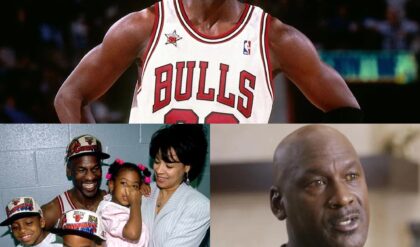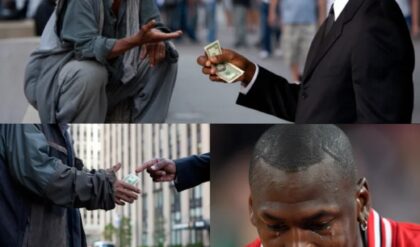‘Back To Black’ was the title song from the 2006 album that transformed Amy Winehouse into a Grammy Award-winning global superstar and household name.
Unlike anything the world had ever seen or heard before, Amy was a one-in-a-lifetime talent who had a peerless, instantly recognisable, and devastating voice.
What else defined Amy was her songwriting, which laid bare her passion and fearlessness when it came to loving and loving deeply.
Her image became iconic – the beehive, the thick black eyeliner, the sailor tattoos and denim shorts – but it’s her voice and heart-aching songs that will remain her legacy.
At the forefront of her catalogue is ‘Back To Black’, a song synonymous with her triumphs as much as her tragedies, that became the title of her 2024 biopic and in many ways her signature song.
But what was it about? Who wrote it? How successful was it exactly? Here’s all you need to know about ‘Back To Black’:
Who wrote ‘Back To Black’?
Like the majority of her songs, Amy Winehouse wrote the lyrics to ‘Back To Black’ herself.
For this album, she did enlist the help of her producer Mark Ronson in the studio for arrangements to shape the sixties-indebted sound – in a nod to producer Phil Spector who created the legendary ‘Wall Of Sound’ technique – she was searching for, who instantly became her friend and creative confidant.
In a 2010 interview with Mojo magazine, Ronson recalled: “I’ll never forget the first day I met Amy – because it changed everything for me.”
“It was in New York, March 2006, in the studio I used to have on Mercer Street. She told me she presumed I was some old guy with a beard – like Rick Rubin.”
“I just thought, Let’s talk about music, see what she likes. She said she liked to go out to bars and clubs, and play snooker with her boyfriend and listen to the Shangri-Las. So she played me some of those records, which turned into a crash course in girl group productions,” he continued.
“She was staying at the Soho Grand around the corner and I told her that I had nothing to play her right now but if she let me work on something overnight she could come back tomorrow. So I came up with this little piano riff, which became the verse chords to ‘Back To Black.’ Behind it I just put a kick drum and a tambourine and tons of reverb.”
“She came back the next day and she was really into it, ended up staying for two weeks and we fleshed out five or six songs.”
“It started with her and her nylon-string guitar and she would play me the song and I would write the chords down. Then she would leave for the night and I would go nuts with the arrangements.”
Ronson amped up the brass instrumentation and big band sound throughout Back To Black, hiring the now-iconic Dap-Kings from Daptone Records for studio sessions.
He later revealed that the song Amy played him that was the biggest influence on the song ‘Back To Black was ‘Remember (Walking In The Sand) by the Shangri-Las.
What was ‘Back To Black’ about?
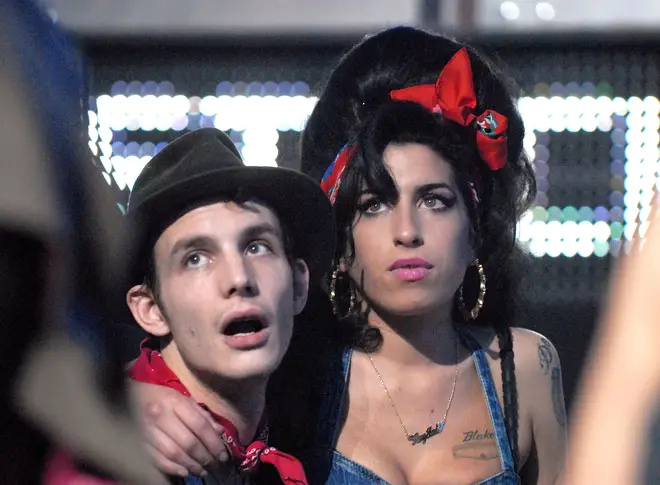
Much of the material Amy was writing ahead of Back To Black was about her on-off partner and future husband Blake Fielder-Civil.
‘Back To Black’ particularly was about a period of personal darkness Amy battled through after they broke up.
Talking to Rolling Stone magazine in 2007, Amy said: “All the songs are about the state of my relationship at the time with Blake.”
“I had never felt the way I feel about him about anyone in my life. It was very cathartic, because I felt terrible about the way we treated each other. I thought we’d never see each other again.”
“He laughs about it now. He’s like, ‘What do you mean, you thought we’d never see each other again? We love each other. We’ve always loved each other.’ But I don’t think it’s funny. I wanted to die.”
What inspired the music video for ‘Back To Black’?
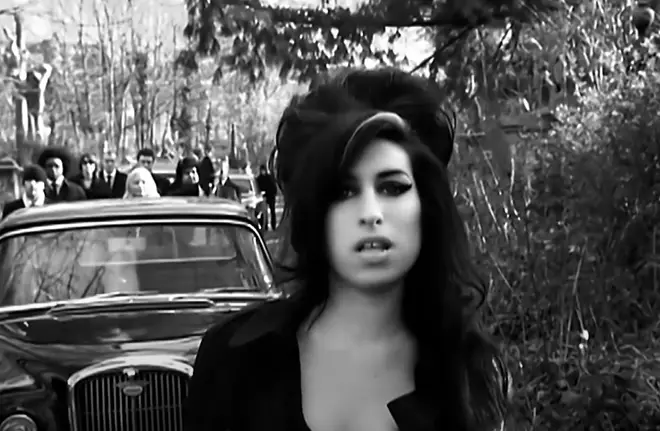
Shot in Abney Cemetary Park in London, the stylish black-and-white music video for ‘Back To Black’ was symbolic of Amy mourning her relationship.
Complete with a funeral procession, coffin, hearse, lilies, and fellow mourners, the small burial site she lays flowers on suggests it’s her heart that she’s burying.
Explaining to The Sun in 2006, before she and Blake got back together, Amy said: “‘Back to Black’ is when you’ve finished a relationship and you go back to what’s comfortable for you.”
“My ex went back to his girlfriend and I went back to drinking and dark times.”
How did ‘Back To Black’ perform after it was released?
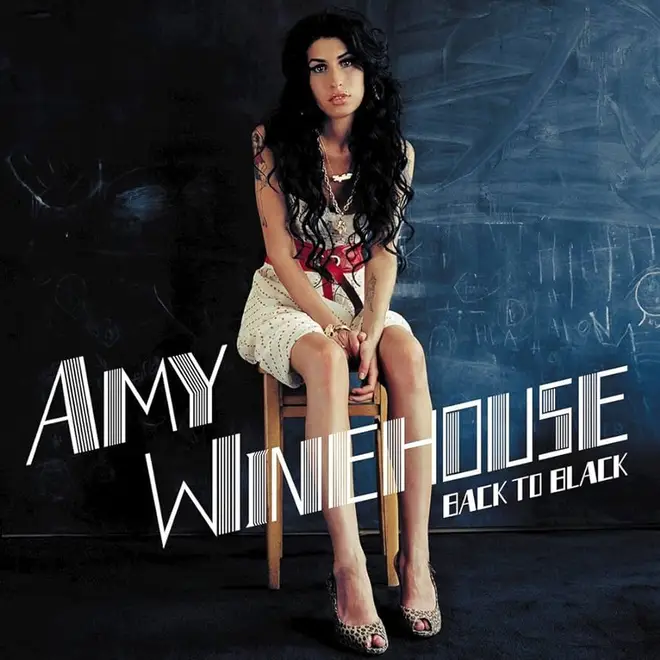
First released on 26th April 2007, ‘Back To Black’ was the third single from Amy’s lauded album of the same name.
Despite its critical acclaim, ‘Back To Black’ wasn’t a major success only reaching number 25 on the UK charts, whilst previous singles ‘Rehab’ and ‘You Know I’m No Good’ fared much better.
Nevertheless, Amy was propelled to global superstardom with Back To Black, which entered the US Billboard Hot 100 album chart at number seven, making Winehouse the highest debuting British female artist in the history of the US albums chart.
Her acclaim didn’t stop there – she won Best Pop Vocal Album at the Grammy Awards in 2008, and was nominated for both Album of the Year at the Brit Awards and the Mercury Prize awards.
Back To Black went on to become the best-selling UK album that year, and the second highest-selling UK album of the 21st century.
After Amy’s tragic passing, ‘Back To Black’ re-entered the UK charts reaching the top ten for the first time, proving to be the most popular of the late icon’s posthumous releases.
Has anyone covered ‘Back To Black’?
Miley Cyrus cover Amy Winehouse’s ‘Back To Black’ at Glastonbury 2019
An indication of a song’s iconic status is how many times it’s been covered, and who by.
‘Back To Black’ can safely claim that status, given the likes of Miley Cyrus (alongside Mark Ronson at Glastonbury Festival), Sam Fender, Bryan Ferry, and even Ronnie Spector have covered it.
Heart’s legendary singer Ann Wilson covered ‘Back To Black’ for her 2018 album Immortal, and was effusive in her praise for Amy’s songwriting.
“This song honestly exposes the pain in an abandoned lover’s heart,” she said. “It talks about humiliation, bravery, inextinguishable hope, desolation and feeling small.”
Beyoncé and Outkast rapper Andre 3000 also covered the song for the trailer of Baz Luhrmann’s The Great Gatsby in 2013, though their version was heavily criticised by Amy’s father Mitch Winehouse.
“I don’t think she brings anything to it,” Winehouse told the Daily Mail. “I wasn’t asked for my permission if they could record it.”
“They have got to pay for the privilege, which is what they are doing. I can’t tell you how much it is but it’s a lot of money.”
